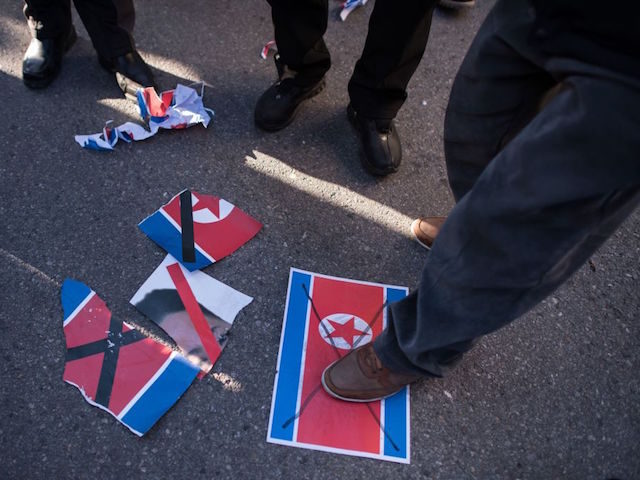South Korea’s ban last month on the launch of anti-Pyongyang leaflets to North Korea was a “great mistake,” a former North Korean diplomat told Reuters on Monday.
Tae Yong-ho served as North Korea’s deputy ambassador to Britain before defecting to South Korea in 2016. He told Reuters on January 11 that Seoul’s ban had cut off one of the few sources of outside information available to North Koreans.
“It’s a great mistake,” Tae Yong-ho, the first North Korean defector to be elected as a South Korean legislator, said at the Reuters Next virtual conference.
“We can only bring a change in a communist state with soft power, not military interventions or economic blockade,” he said.
North Korean defectors and anti-Pyongyang activists in South Korea have used balloons to send humanitarian aid to North Koreans across the tightly guarded border dividing the Korean Peninsula for decades. In addition to leaflets critical of Pyongyang’s communist regime, the balloons may carry food, medicine, and cash. The packages often contain sources of information about the world outside of North Korea, such as radios and USB flash drives, and DVDs containing South Korean news and dramas.
“In a 2019 survey by a Seoul-based activist group, more than 71 percent of 200 defectors said they had watched a South Korean drama or film before fleeing their homeland, mostly using a DVD or USB device at night when surveillance is weak,” Reuters recalled on Monday.
“In daytime, the population is shouting ‘long live [North Korean dictator] Kim Jong Un,’ but at night they all watch South Korean dramas and movies,” Tae said at Reuters’ January 11 conference.
“Why stop the inflows of information?” he asked.
Tae gleaned knowledge about the world outside North Korea from embassy communiqués posted in Europe while he worked as Pyongyang’s deputy ambassador to Britain. He then based his decision to defect to South Korea on this new information.
“My children learned that their lives were nothing but those of contemporary slaves if they go back to North Korea,” he said at Monday’s conference.
“My sons knew everything, and I knew everything. It was my decision … and I wanted to give them the choice of freedom,” he added.
South Korea’s parliament passed a bill on December 14 banning the launch of balloon care packages and leaflets to North Korea after Pyongyang expressed increased hostility toward Seoul last year for allowing the practice.
After weeks of tense diplomatic relations between the North and South over instances of “leafleting,” Pyongyang said on June 8 that it was cutting off all communication with Seoul. The North’s Korean Central News Agency (KCNA) said Pyongyang’s decision was part of “the first step of the determination to completely shut down all contact means with South Korea and get rid of unnecessary things,” referring in part to instances of leafleting in the weeks directly preceding June 8.
“The South Korean authorities connived at the hostile acts against (North Korea) by the riff-raff, while trying to dodge heavy responsibility with nasty excuses,” KCNA said.
Amid increased pressure from Pyongyang, the South Korean government had attempted to crack down on leafleting by North Korean defectors and anti-Pyongyang activists residing in the country last year but were unable to prevent a handful of balloon launches.

COMMENTS
Please let us know if you're having issues with commenting.